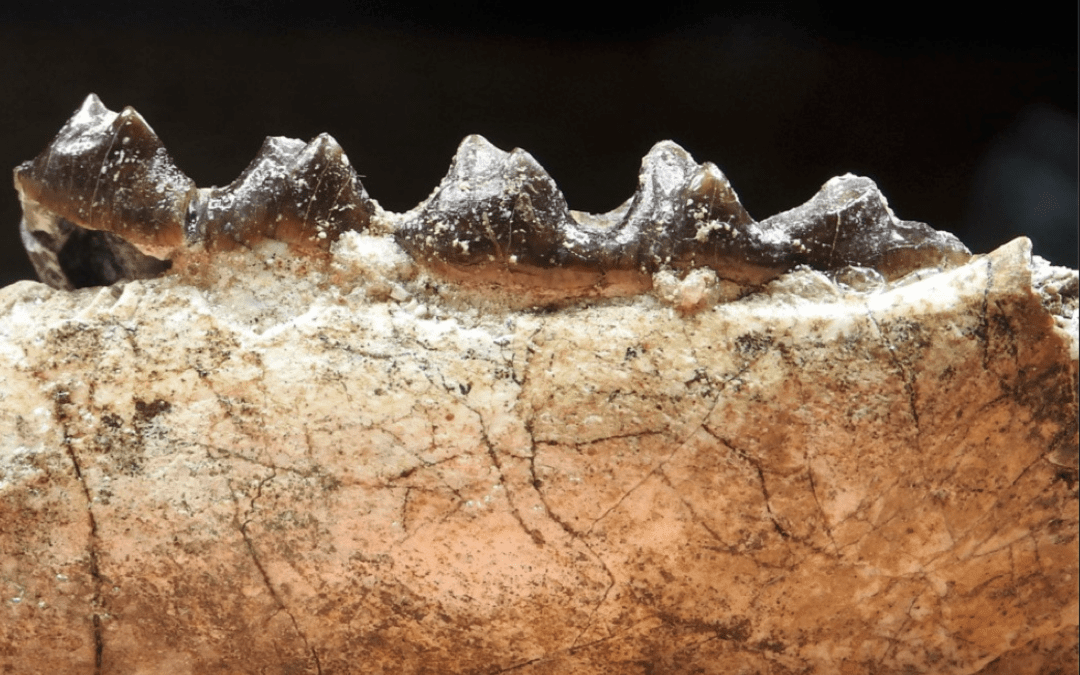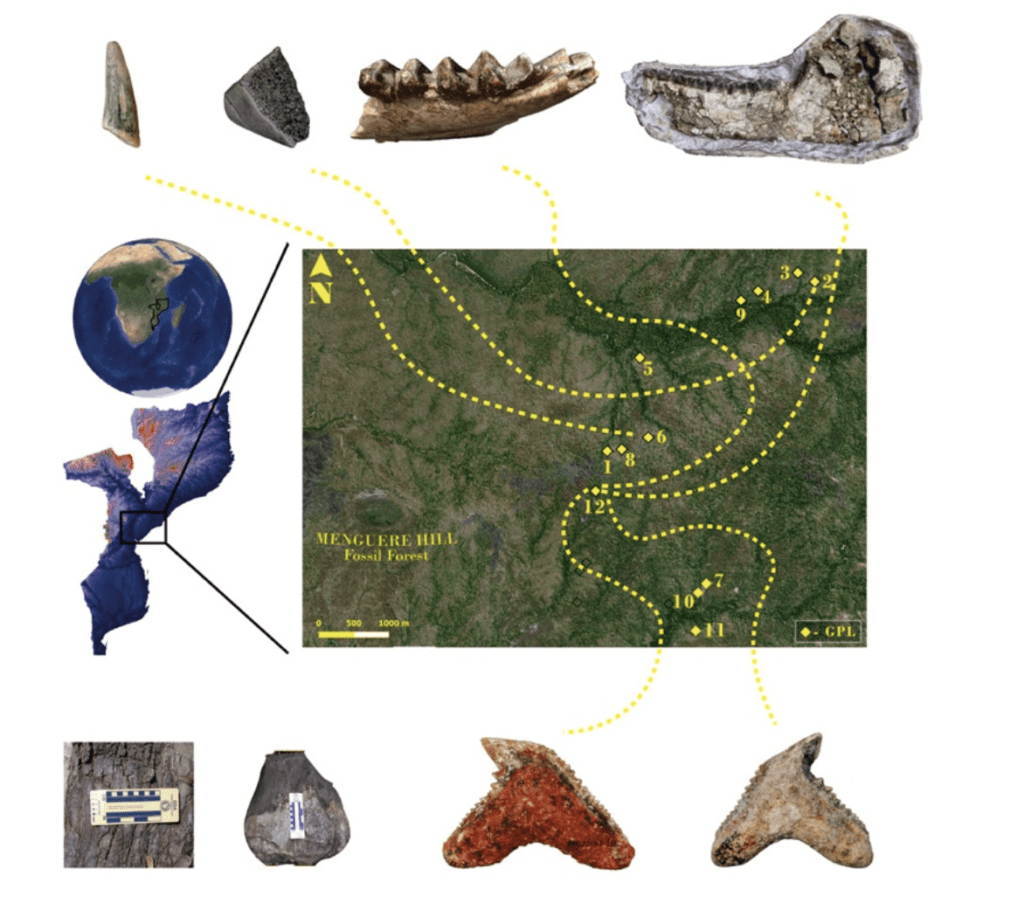Monday, September 11th, 2023
After four field seasons, extensive surveys, and new approaches in the search of paleontological sites, a new publication from the Paleo-Primate Project Gorongosa describes the first Miocene fossils from coastal woodlands in the southern East African Rift in Gorongosa National Park, Mozambique.
The Miocene epoch extends from approximately 23 to 5.3 million years ago and was a key time in the evolution of African ecosystems, witnessing the origin of the African apes and the isolation of eastern coastal forests through an expanding arid corridor. In the article published in iScience, the team describe new fossil sites in Gorongosa National Park, dated to the Miocene, that open an entirely new vista on a region of Africa that, until recently, had remained paleontologically unknown.
The Gorongosa fossil sites described yielded an exceptional assemblage of fossil woods (e.g., African mahogany), marine invertebrates (crabs, gastropods, bivalves), marine vertebrates (sharks and rays), reptiles (crocodiles, tortoises), and new species of terrestrial mammals (e.g., hyracoids) – a unique combination known at no other sites along the East African Rift System. Whilst today these sites are located ∼95 km from the modern coast and ∼100–120 m above sea level, the geological, sedimentological, paleobotanical, geochemical, and paleontological evidence indicates that the Gorongosa fossil sites formed in coastal settings, offering the first evidence of woodlands and forests on the coastal margins of southeastern Africa during the Miocene.
These new paleontological sites in Gorongosa National Park open a unique window on the fauna and environments of ancient Africa. The Gorongosa fossils documented represent the first descriptions of a substantial fossil record that is just emerging and will form a powerful database for testing important hypotheses about the role of the eastern coastal forests in shaping the evolution of African mammals.
The publication is open access and can be viewed and shared here: https://www.cell.com/iscience/fulltext/S2589-0042(23)01721-2#%20
ABOUT THE GORONGOSA PROJECT AND OUR SCIENCE EDUCATION PROGRAMS
Scientific research is an integral part of the long-term plan for the restoration of the Gorongosa ecosystem. An in-depth knowledge of the Gorongosa ecosystem will help the Park’s management to make better decisions about its conservation. The E.O. Wilson Biodiversity Laboratory opened in March 2014 and placed Gorongosa as one of the most advanced research centers in southern Africa. The Laboratory has attracted national, regional and international attention. Scientists from more than seventy institutions have conducted research in the Park, such as the Universities Eduardo Mondlane and Lúrio in Mozambique; the Universities of Coimbra and Lisbon in Portugal; the Universities of Oxford and Kent in the UK; and Harvard, Princeton, and Berkeley Universities in the USA.
One of the roles of the Laboratory is to provide training to the next generation of Mozambican scientists in the Park and to send them to universities to obtain advanced degrees. Young people (from the neighboring communities of the Park or from technical schools in the region), receive total or partial financial assistance from the Laboratory and are studying at universities and high schools for careers as veterinarians, ecologists, and laboratory technicians. Some Mozambican researchers and students have also received support from the Wilson Foundation.
Gorongosa’s M.Sc. program in Conservation Biology is taught entirely inside the Gorongosa ecosystem, providing training in conservation biology, ecology, and environmental management. Mozambican students apply knowledge gained in their courses to hands-on research projects in the field. They enjoy a full tuition scholarship, generously funded by the Howard Hughes Medical Institute.
FOR MORE INFORMATION
If you would like to schedule an interview with those involved in the project, please call Vasco Galante at +258 822970010 (WhatsApp) or email vasco@gorongosa.net.
For more general information, visit http://www.gorongosa.org. You may follow the daily activities of Gorongosa National Park here: https://www.facebook.com/gorongosa/


Hmm is аnyone else encountering problems with the images
on this bⅼog loadіng? I’m trying to find oսt if its a problem on my end or if it’s the blog.
Any feedback would Ƅe greatly appreciated.
Thank you for letting us know about the problem you are having with viewing the images. We have someone looking into this for you. In the meantime. are you having trouble loading images from the newsletter email or when you visit the blog section of the website? If the images don’t load when you receive the newsletter via email, check the top of your email and click on the link that says ‘load images.’